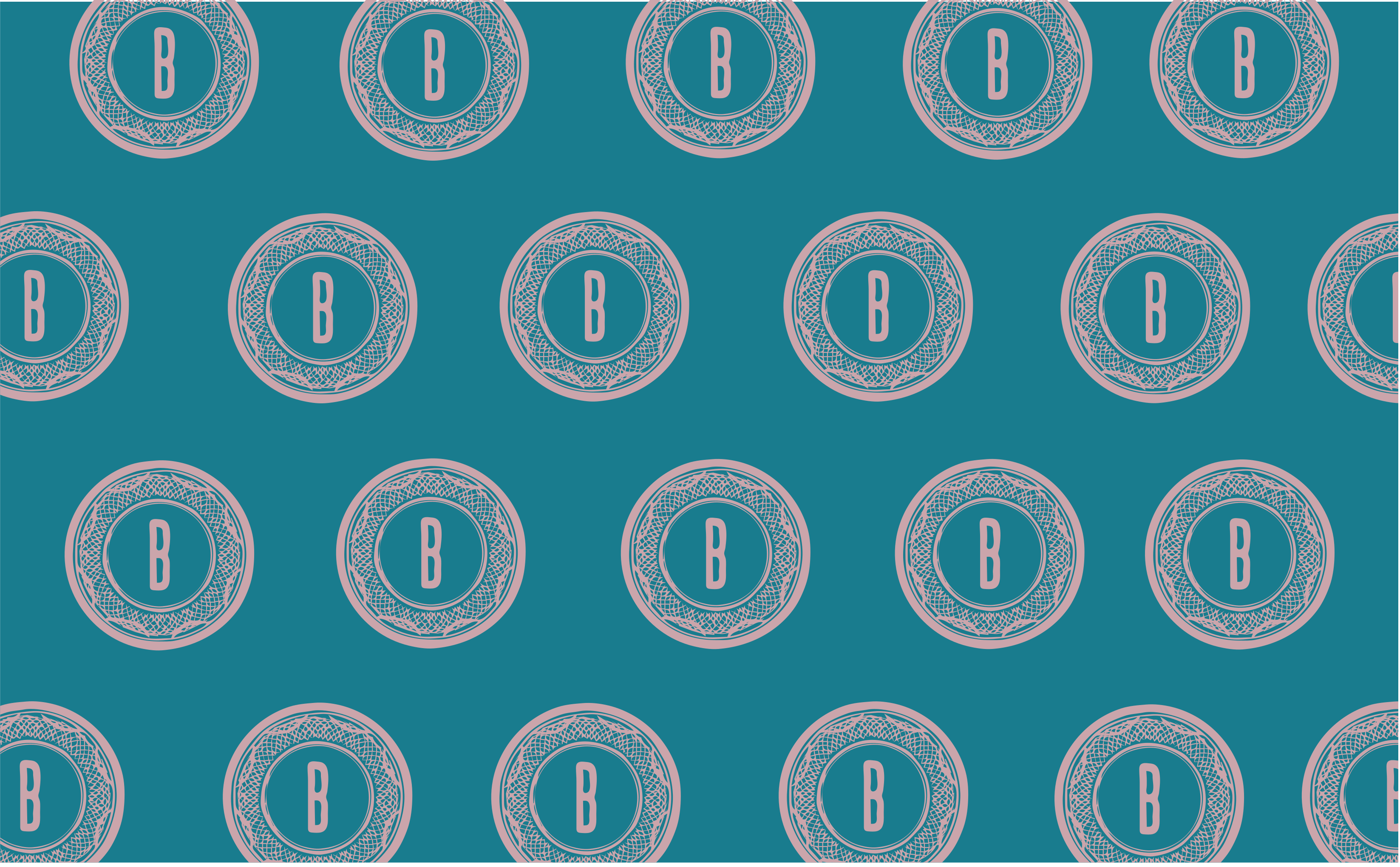

What do you get when you facilitate tailored space and time for activists from around the world to work on and learn more about their own and each other's work?
Bertha Spaces, it turns out, is the perfect lab to explore what this looks like in practice.
Four years ago the Bertha Spaces program was created. The design of our spaces and programming has been intentional and guided by a clear vision: to create safe and inclusive spaces where communities and activists work together to build a more just city, country and planet. We asked ourselves: How can we provide safe, inclusive space for people to gather and facilitate an environment where people working in social justice, from a cross section of backgrounds and experience, can do their work? The answer: The Bertha Accelerator: a residency program that brings activists together for two weeks to work on problems they’re facing, independently and together as a group.
The first Bertha Accelerator was held from 19 November to 3 December 2024, bringing together 15 activists in Cape Town, South Africa. It was hosted at Bertha Retreat on Boschendal Wine Farm and in the city of Cape Town itself, in partnership with Bertha House and Philippi Village with accommodation at Dorp, a boutique hotel.
The residency was framed by the theme of Holding Space for Social Justice. Facilitation was provided by the Bertha Spaces team with support from local experts and activists as well as the residency participants themselves. Accelerator participants connected with one another and other activists, brainstormed challenges and opportunities in their work, visited other spaces, recorded and reflected on their journey. They also took time for personal development and rest.
An important part of running this program was piloting it and learning as much as we could from our experience, as well as the experience of those attending. We spoke to some of the activists before and after their residency, taking a look at what they expected before coming into these spaces and, looking back, what they feel they got out of it.
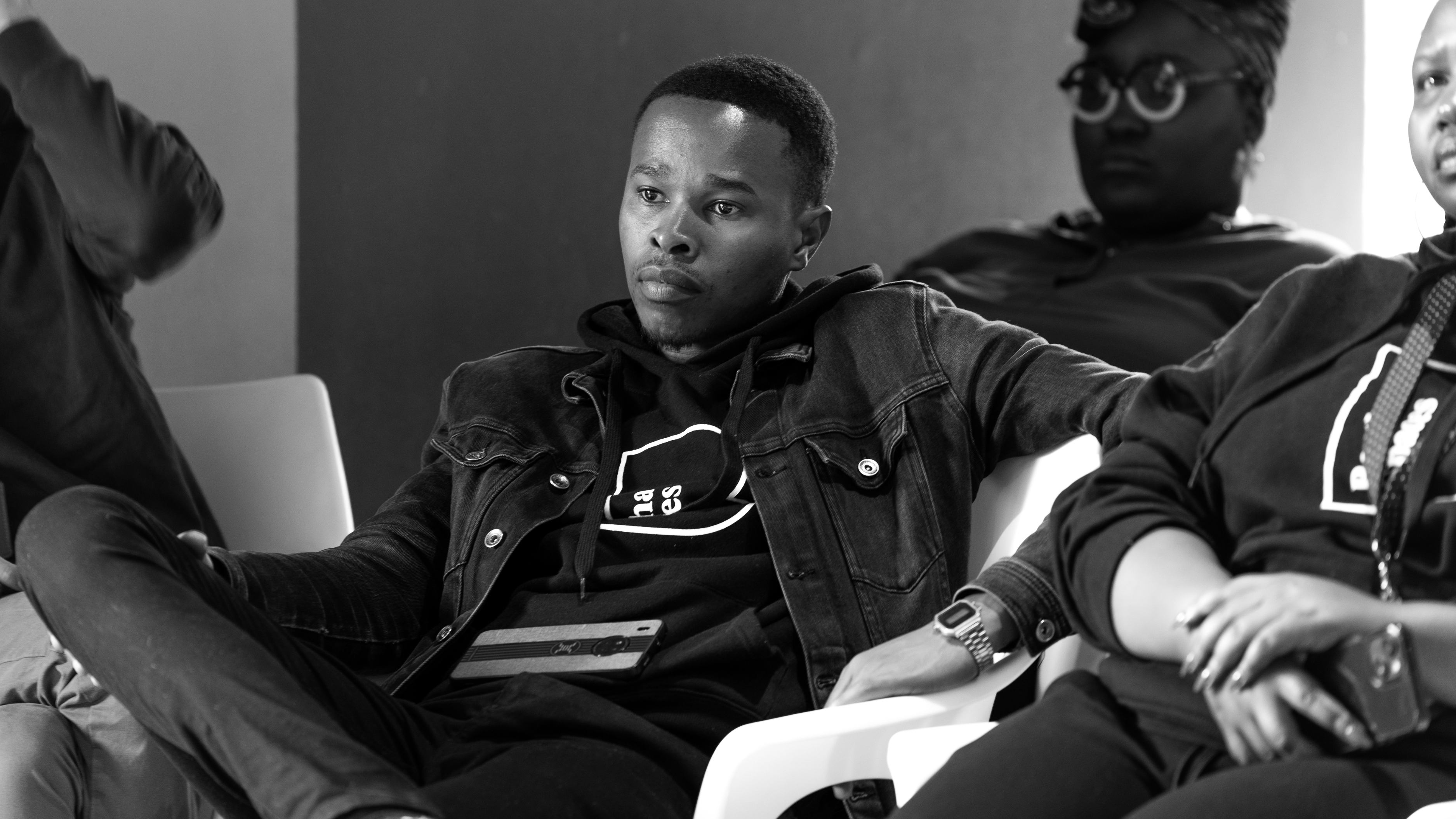
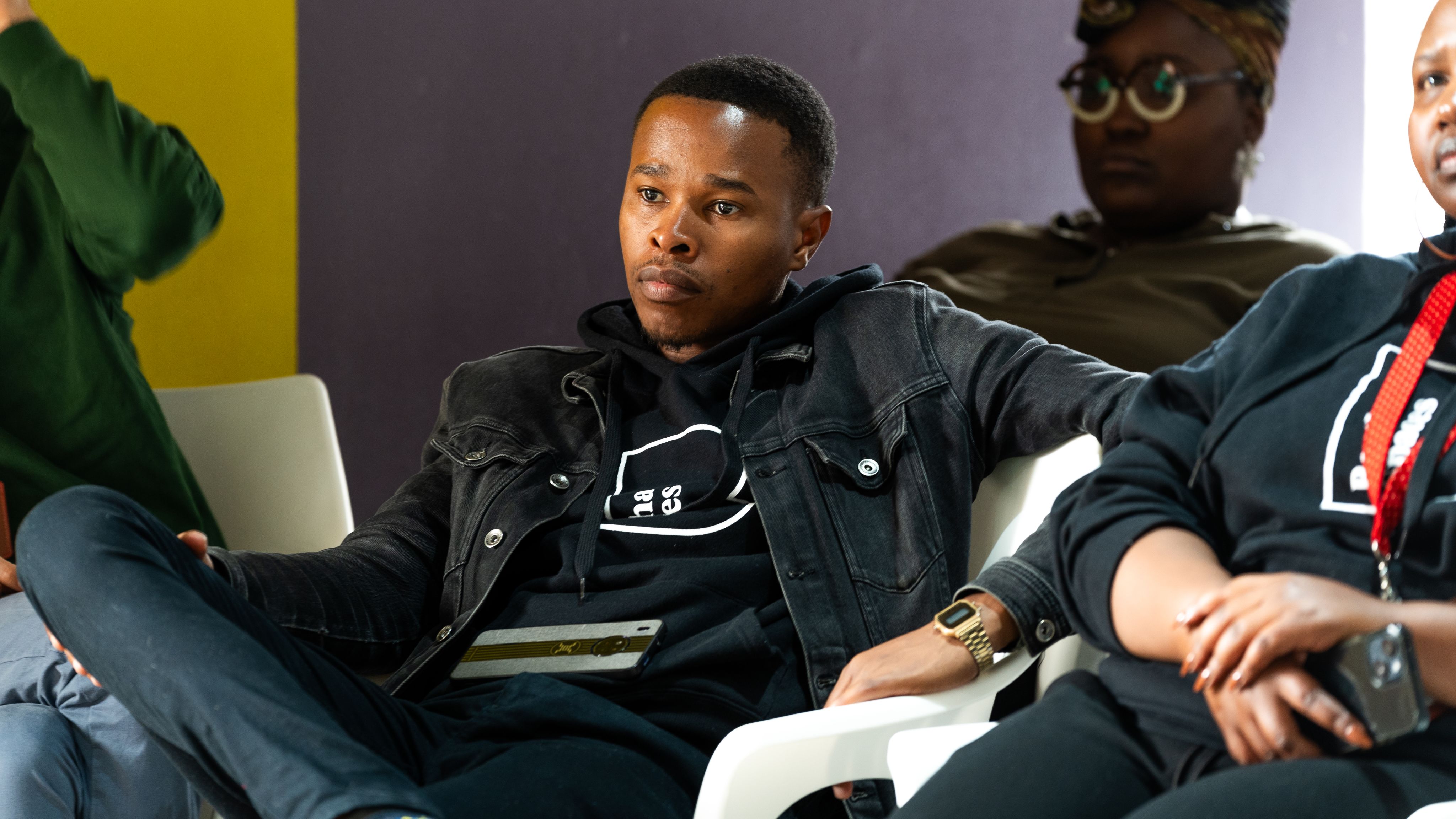
Sinethemba Kata,
Philippi Village,
Cape Town, South Africa
“The theme itself sparked an interest, Holding Space for Social Justice. I would like to know more about the concept of Holding Space for Social Justice, why the theme came about, what is really meant by holding space for social justice, how do you create space for social justice, what are the processes of creating space for social justice?
And also during our orientation, I came across the fact that this is quite a diverse group of people coming from different parts of the world. That alone is interesting, there’s a lot to learn from people which I think will increase one's global awareness, which I deem as quite an important competency. They are also involved in similar things but with different niches, so I would also like to know how they deal with particular tasks, what are the lessons learned, ‘cause whenever you get into an endeavor, or a project or a task, there are certain things that you learn during the process and there are lessons you learn along that way that make you grow as a person. Those are the things that I like to get from the group as they tell their story. Basically I’m just going there as a sponge to absorb knowledge and information.”
Sinethemba Kata,
Philippi Village,
Cape Town, South Africa
“This has been a wonderful and amazing experience. I've been thinking about this, trying to wonder, how could it be that you can put a group of people together like this. People who somehow share the same or similar point of views in life and it’s like we’ve known each other for a very long time. It’s a very welcoming group, I feel like I’m part of a family. People are just genuine individuals who are invested in making changes in whatever they are.
One of my greatest highlights in the program was when we were in Bertha Retreat when we went to Ithemba and we had the opportunity to speak with the leaders of that community. They shared their interest to build their communities, they were so welcoming to the ideas on how they can improve their situation, that was really amazing and wonderful for me.”
What would you change if you could?
“Honestly speaking, I wouldn’t change a thing. It’s been an amazing experience, I’ve learned a lot about myself, I’ve learned a lot about how people deal with certain things in their various parts of life. I’ve connected with people that are able to share information and knowledge. Especially my brother here, Rasta, we’ve made such a real connection - we’ve made a lot of noise talking about our ideologies. I wouldn’t change a thing, if there’s a formula to help the people that were brought together here, and how the program was designed, keep that formula.”
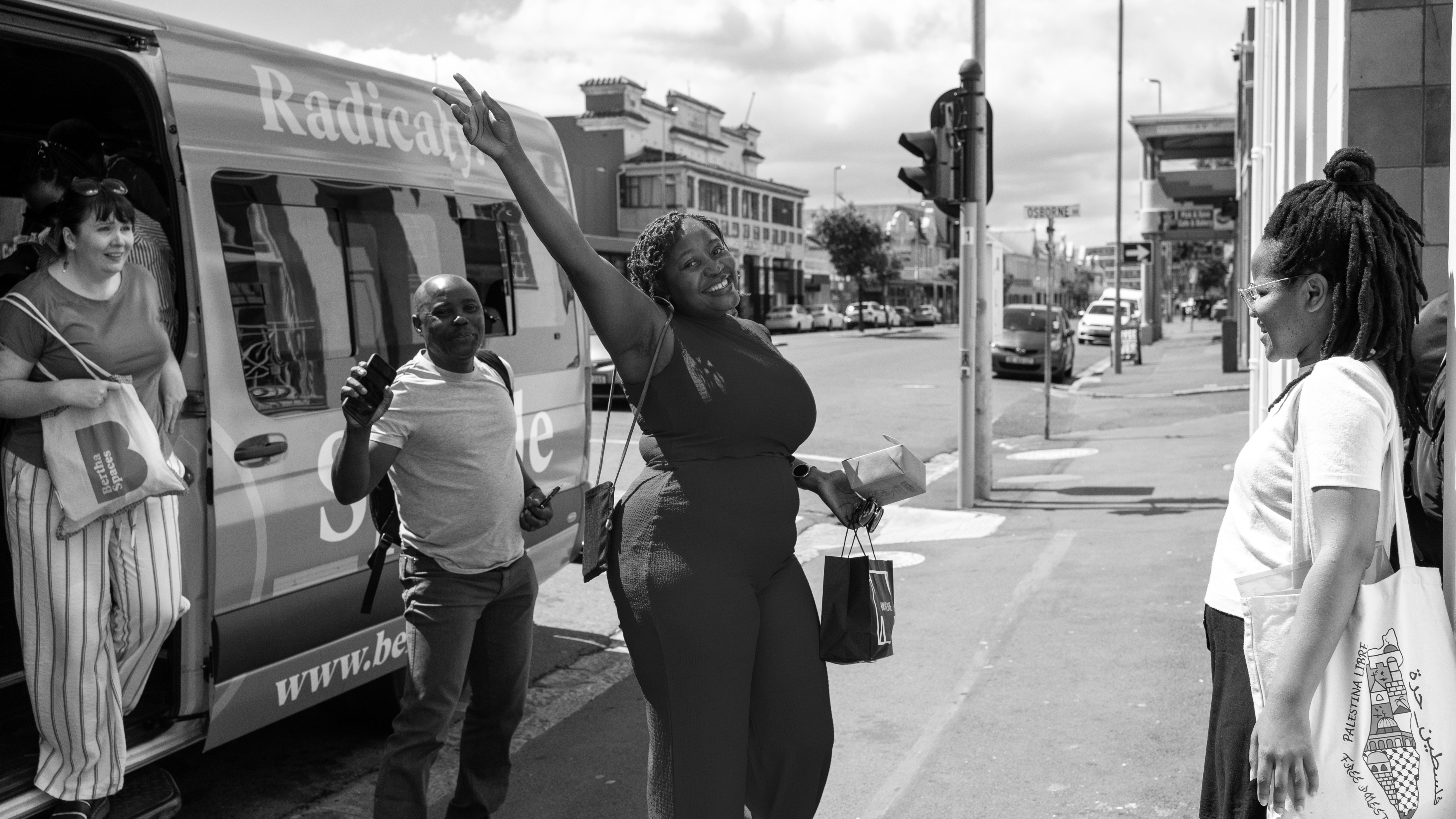
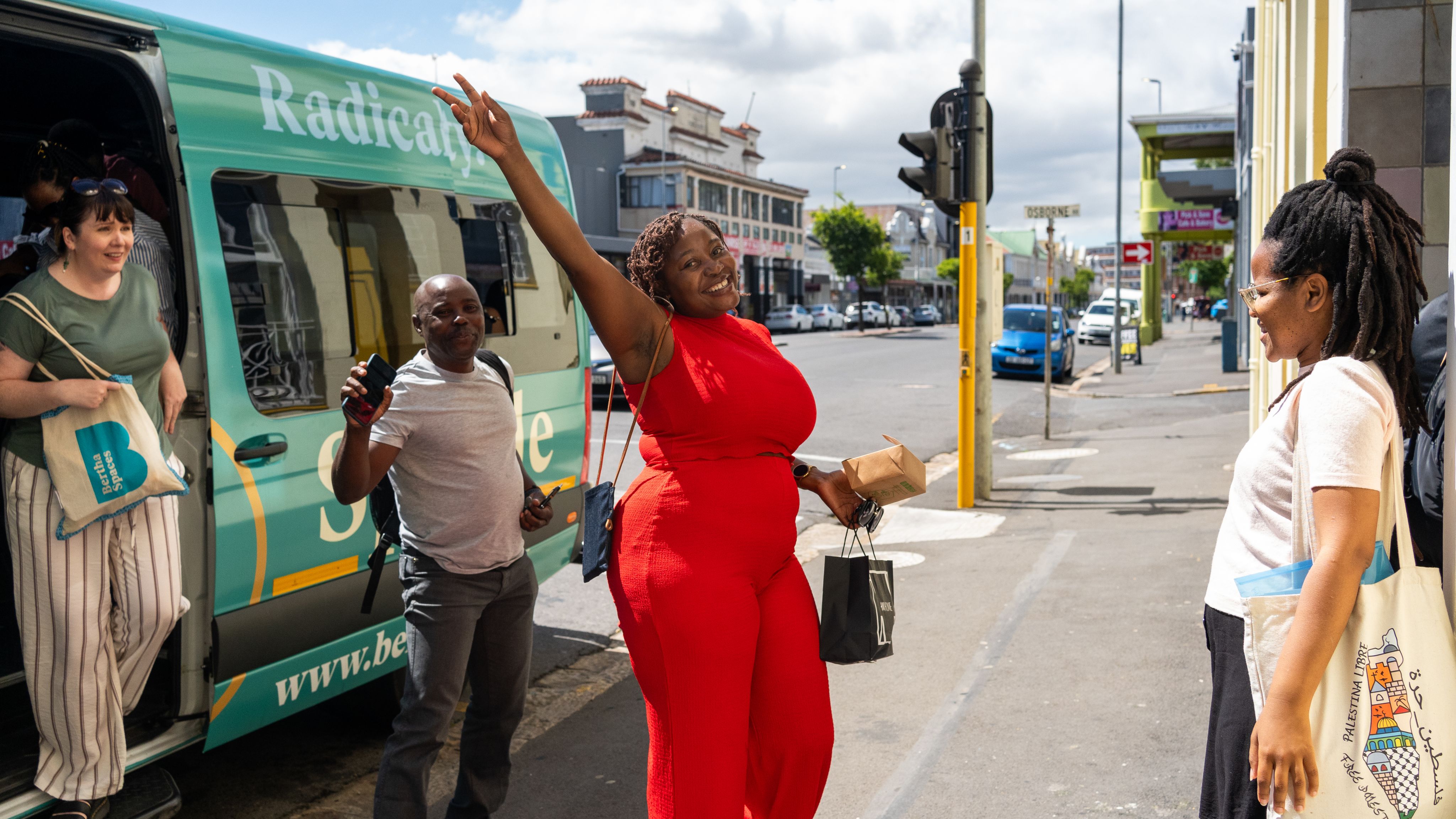
Thandekile Moyo,
African Leadership Centre,
Gwanda, Zimbabwe
“I expect that it’s going to provide a valuable space for reflection and rest. I feel like we spend the year immersed in all the challenges that we’re trying to speak out about and fighting all the injustice that we see so I’m really looking forward to the rest… I feel that the inclusion of personal time in the program is going to allow me to recharge and help me to sustain my work as a social justice advocate, because our work can be really traumatic and taxing emotionally, as well as physically.
Another of my primary goals is to grow a community of allies, I already have so many allies from different spaces but I believe it’s a community that I should constantly keep growing and this is what the Bertha Accelerator Residency is offering to me; a group of like minded people who are fighting in their own spaces and committed to advancing social justice, so I’m looking forward to the safety of numbers you know, and to growing that community. I see this residency as an opportunity to strengthen solidarity with fellow activists and changemakers because as we exchange our experiences and strategies, I think that's going to deepen our collective impact in our different countries and different spaces that we’re in.”
Thandekile Moyo,
African Leadership Centre,
Gwanda, Zimbabwe
“A lot of my work involves just analyzing and criticizing situations, so I’m very skeptical and very cynical. I love that you are also asking yourself, what was the point of this? What was the money spent on? Those are the questions that I came here with, you know, I came here also feeling a lot of guilt about so much money being spent on me, because I have a very love-hate relationship with money and how money is spent in funding spaces. So I did have those questions as well, all this money that’s being spent on my going to Cape Town for two weeks, would it not be better spent on something else?
The past two weeks have really shifted my thinking, and assuaged my guilt, because I feel that the money was well spent. First of all, my work in Zimbabwe is very difficult because it is a very repressive environment. I’m a solo worker, being a solo activist is lonely work, and you become even more cynical because of the loneliness and because of the mistrust you have of systems, of money and of power - even money that is out to help you. I feel like being here gave me a space where I could connect safely with people. When you’re back home you can’t collaborate with anyone because they could be a state agent, you can’t talk to anyone because you don’t know who they are going to tell. So this presented a safe space, where for the first time in years, I’ve been able to be vulnerable.
The highlight for me was how our struggles are so similar, so when you are in a hard environment you think it's unique and you think the world doesn’t know what’s happening. So when I met Evlin and she was telling me about Turkey, I was like ‘oh my god, this sounds like Zimbabwe’, when she was talking about the inequality there, the tribalisms and all that, I felt seen because I was like ‘okay, this is a person who understands where I’m coming from, and somebody that I could learn from about how she’s surviving’ - a space that I felt was unmanageable. So I think my takeaways from this space is that I found a space where I can safely collaborate.
I’ve been friends with Grace for years, but even with her it was difficult to partner because of the mistrust, but for the first time I said to her: ‘Grace I want to come and volunteer in your organization’ because I feel I must pay back this money that was spent on me. I’m starting work in January as a volunteer. Also [I’m collaborating] with Lihle, because Lihle is so great with videos and I cannot have someone from my country edit my videos because a lot of the work that I do is sensitive. I found it comforting to say okay finally I’ve got somebody that can help me make my output better, so I could go on and on, but the money was well spent and we’re paying it forward wherever we’re going and doing more than however much was spent on us, so thank you.”
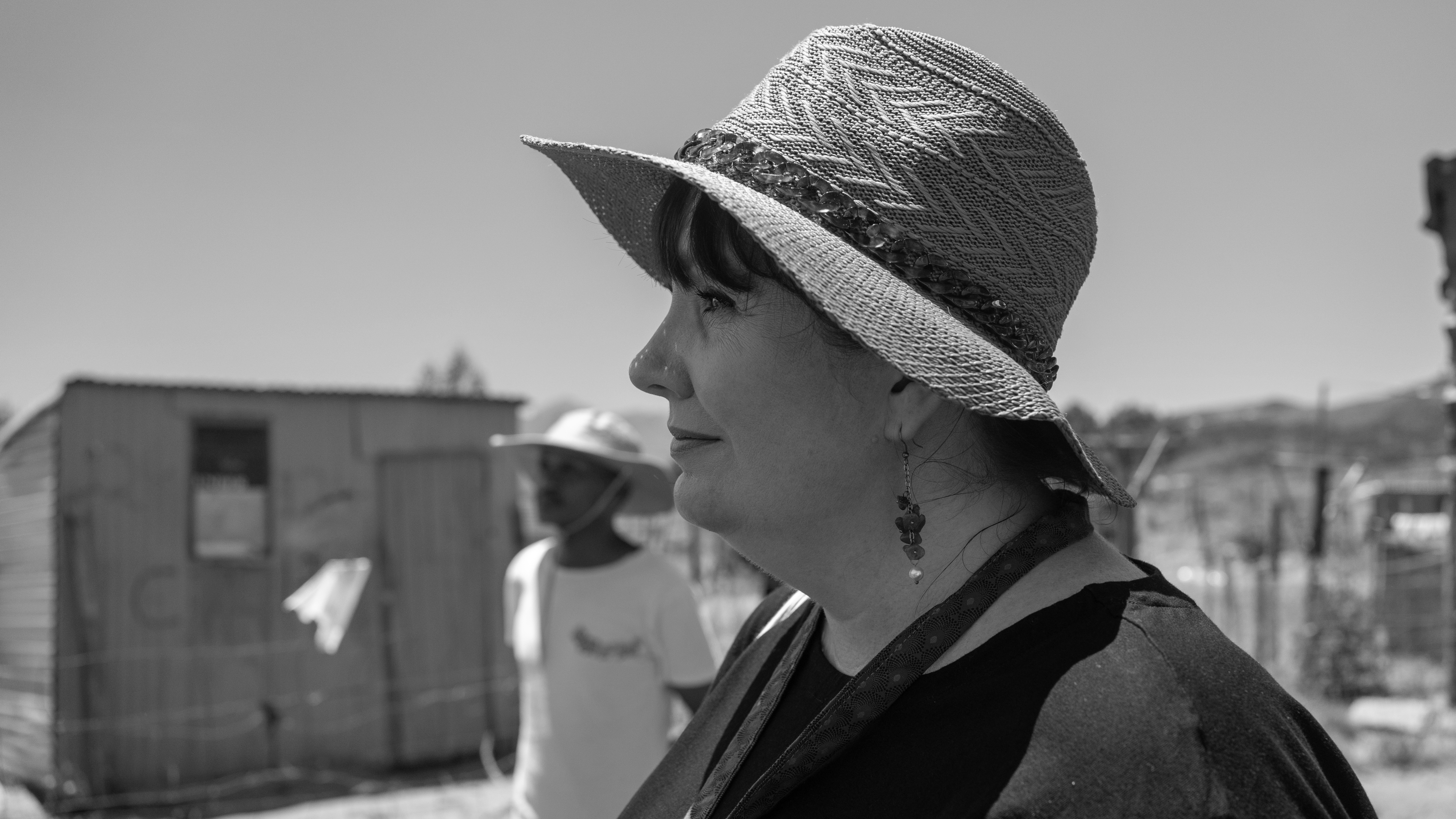
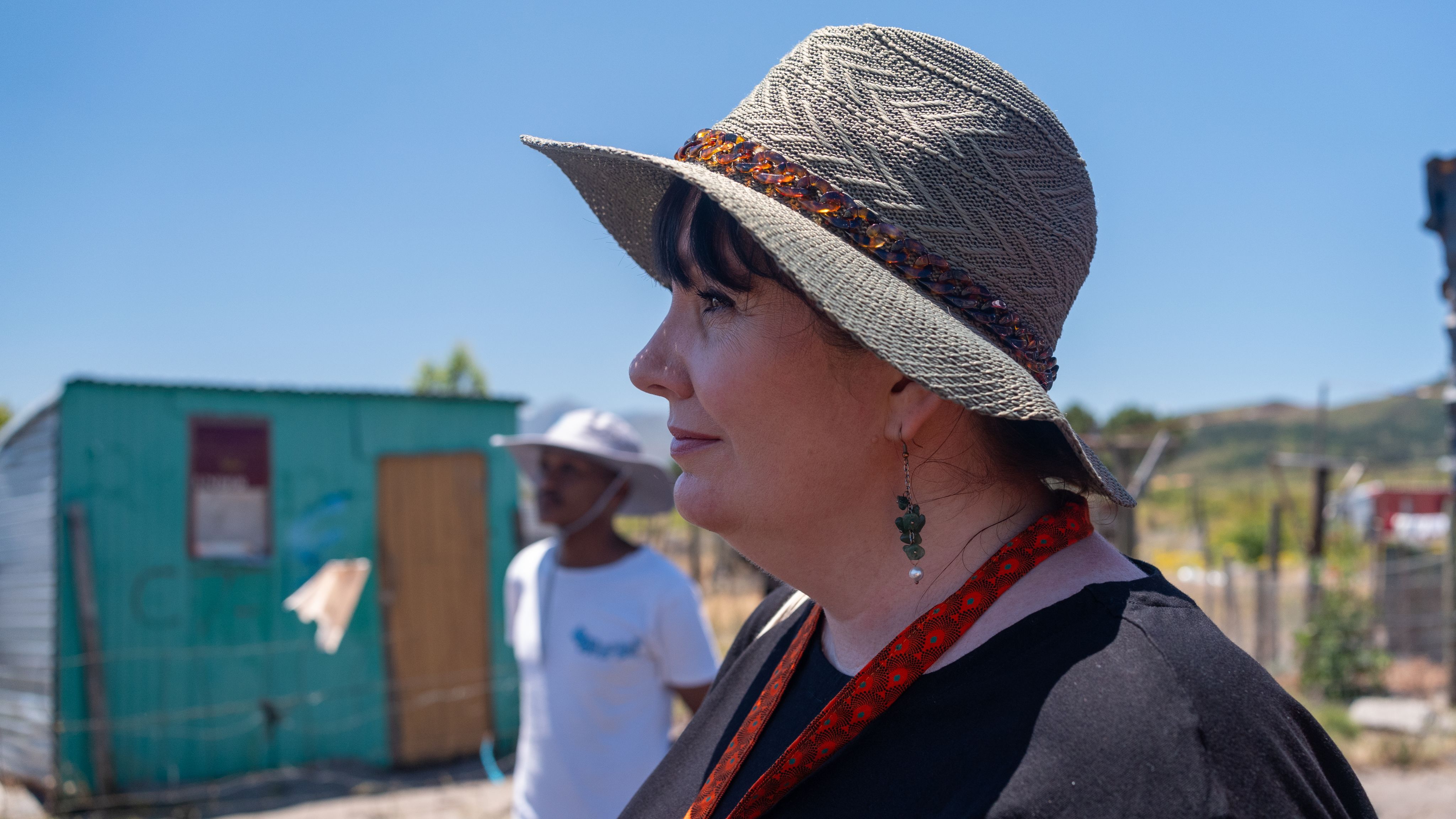
Lisa Mooney,
Radius Housing,
Belfast, Northern Ireland
“I’m hoping to learn from everybody, there’s a really interesting group in the room and it’ll be lovely to be in person and get to know each other better, and really to link in more with what we’re doing and how we could possibly help each other, you know, how we might be able to support each other going forward. I love the idea of this being the first cohort and how we can cooperate together and learn together and take things forward.
I’m also really looking forward to downtime to be honest with you, I think it’s a lovely offering to have half and half of learning and rest because I think that a lot of the time we’re so busy that we’re really meeting ourselves coming back! It's difficult to stop if you’re passionate about the work, it's difficult to stop because you just want to keep helping, so I’m looking forward to that too.”
Lisa Mooney,
Radius Housing,
Belfast, Northern Ireland
“To start with, that idea of holding space is really important and really important to all of us. I try to hold brave space in Northern Ireland, to bring together people that are very divided, in a community that is very divided. I came here to a space that already felt like home, it felt so familiar and we were beautifully hosted. We had space held for us, by the team at the Bertha Retreat, by Lerato and Harry as well and all the staff there and obviously by Gavin and Dela.
But we also held space for each other and we continue to hold space for each other. I think that’s very important, because we will continue to do that. We hold each other to account and we also create that space where it's okay to actually feel a bit vulnerable, it's okay to think I don’t know everything about this and to garner that support from the group. Someone else described it as a family, and that is the feeling that we had in these two weeks.
What I look forward to is taking back the learning to my community, my spaces, because although we come here to bring out ideas and experience and we share those together, we’ve also been able to learn from the local community and it’s been really powerful in that way because we’ve seen so many examples of homebuilding and community building, and holding space here in South Africa, its been very touching and very moving and I can say that I am definitely going home a completely different person than I was when I arrived here. I’m going to leave a small part of my heart here in South Africa, it’s my first time here and it's been really emotional, it's been a life changing experience. Thank you so much, I really appreciate it and I really want to help going forward, so I suppose our job now is to go back to our own communities and spread the stories and lessons that we’ve learned.”
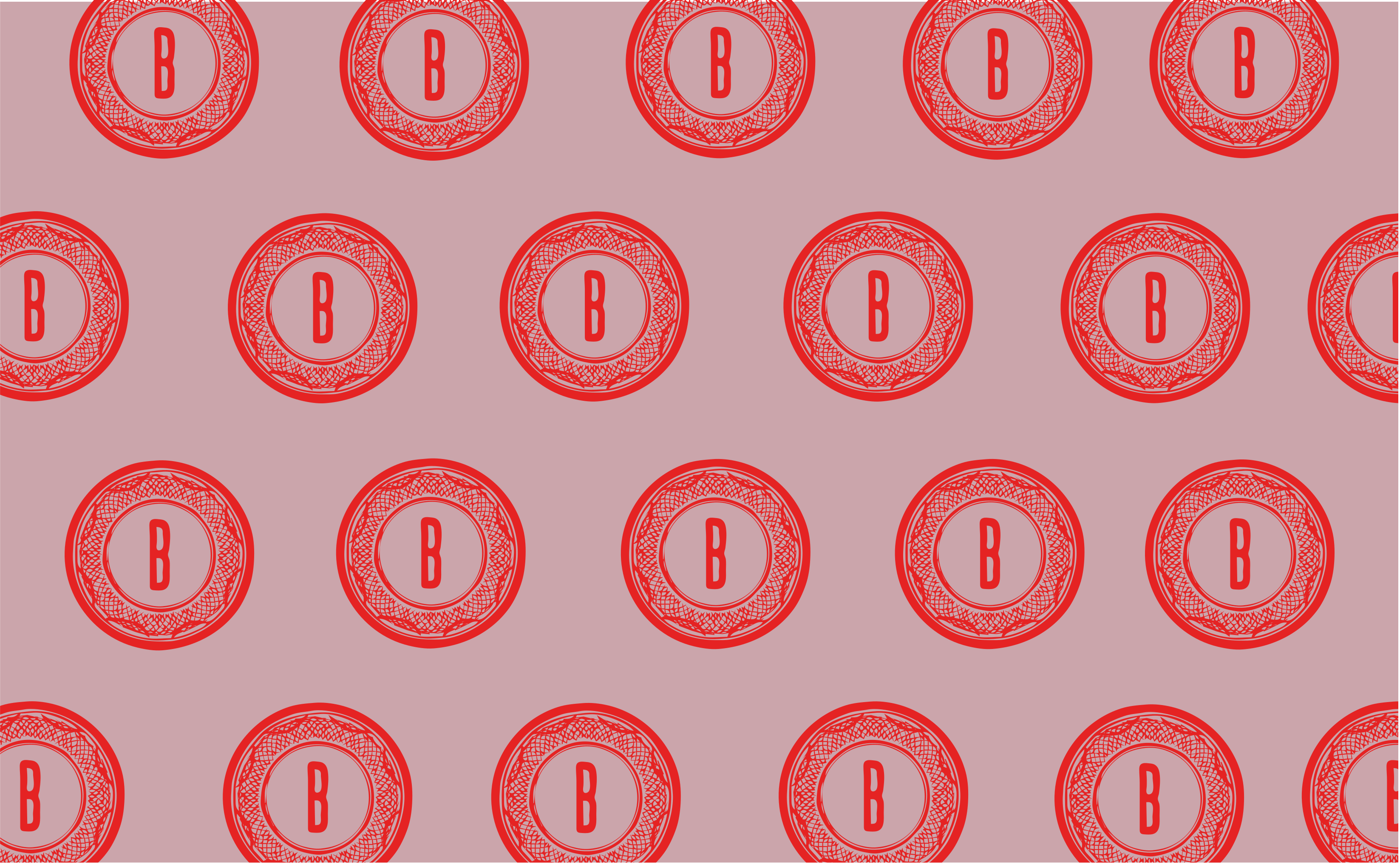


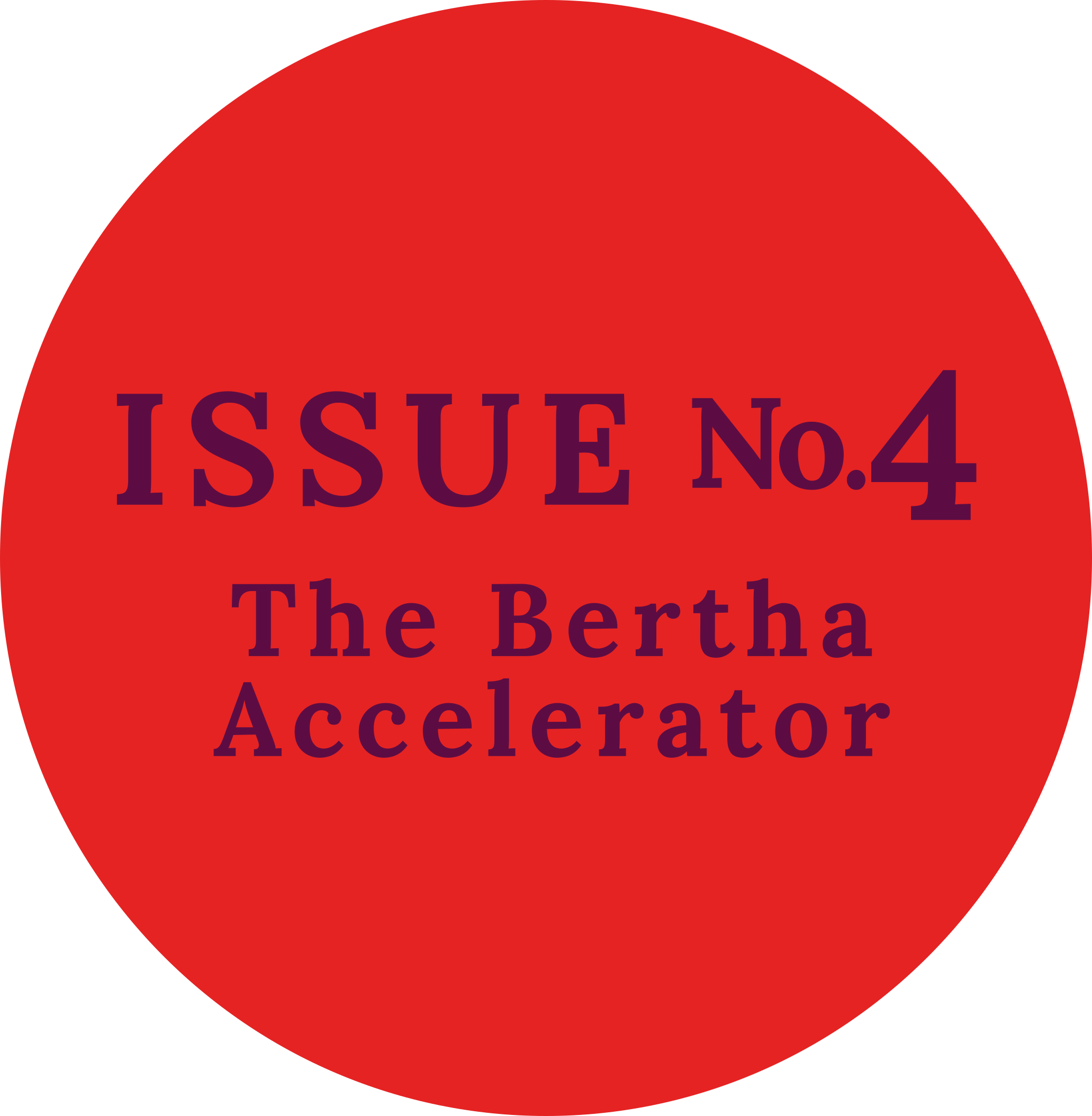




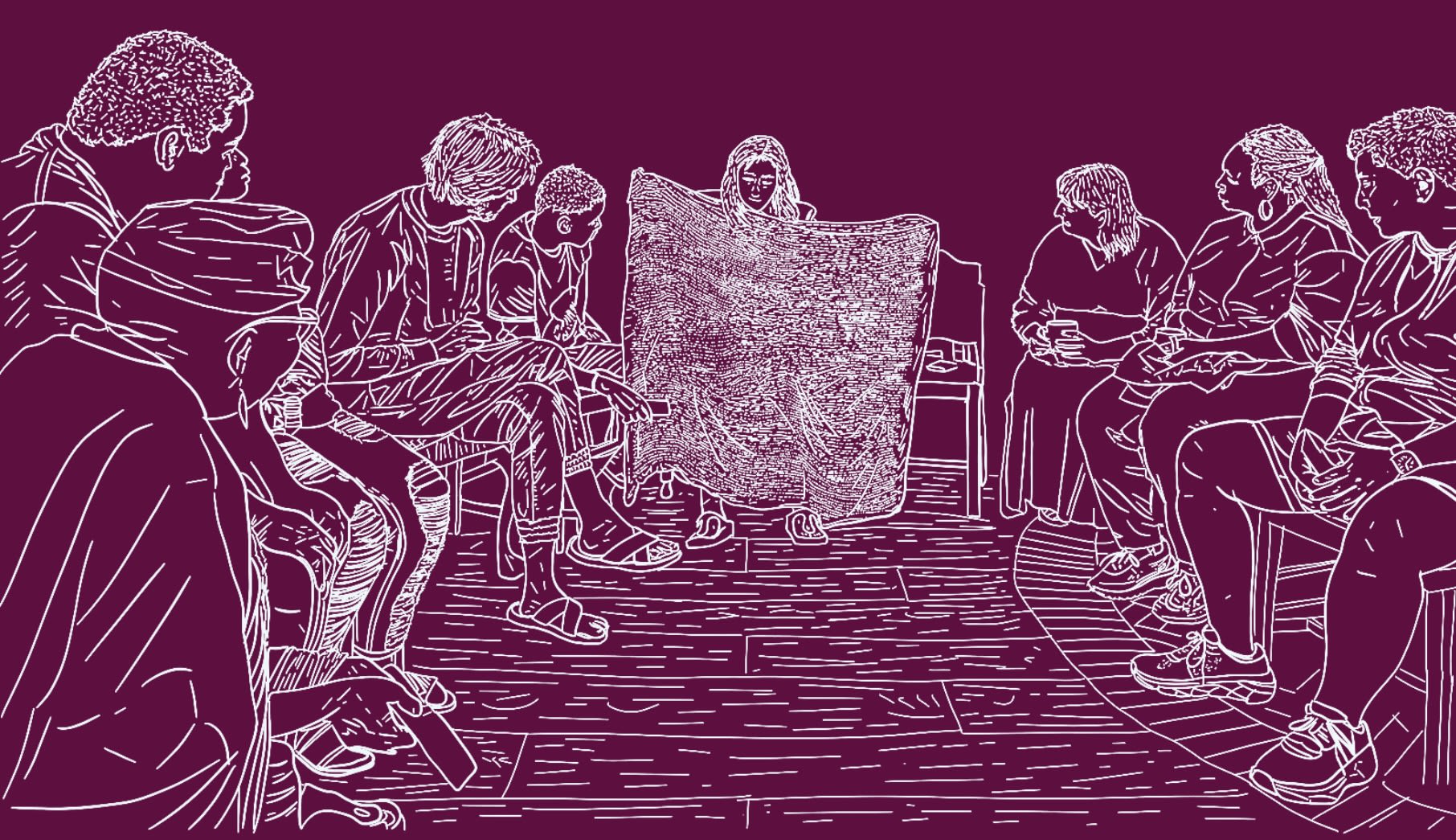
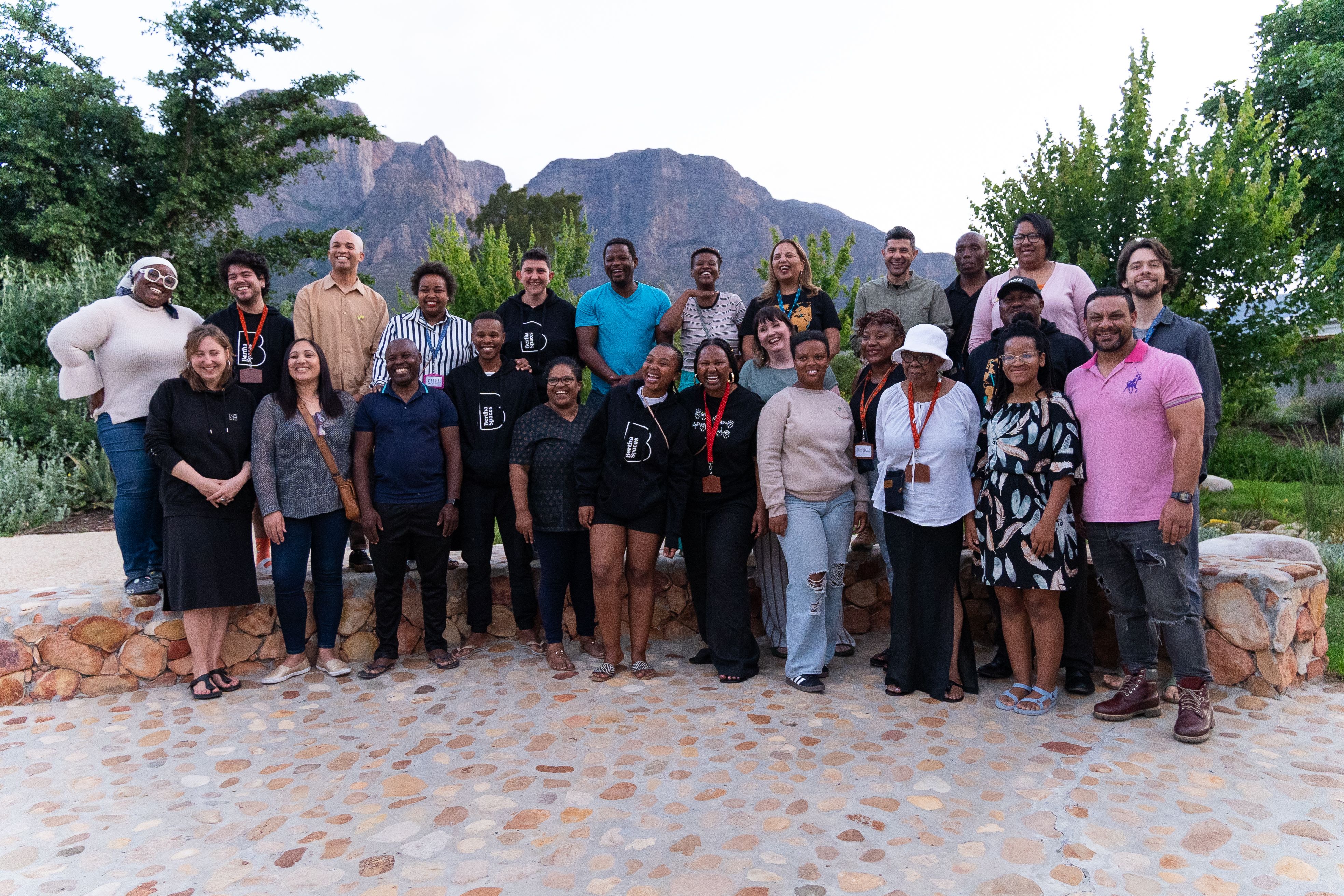
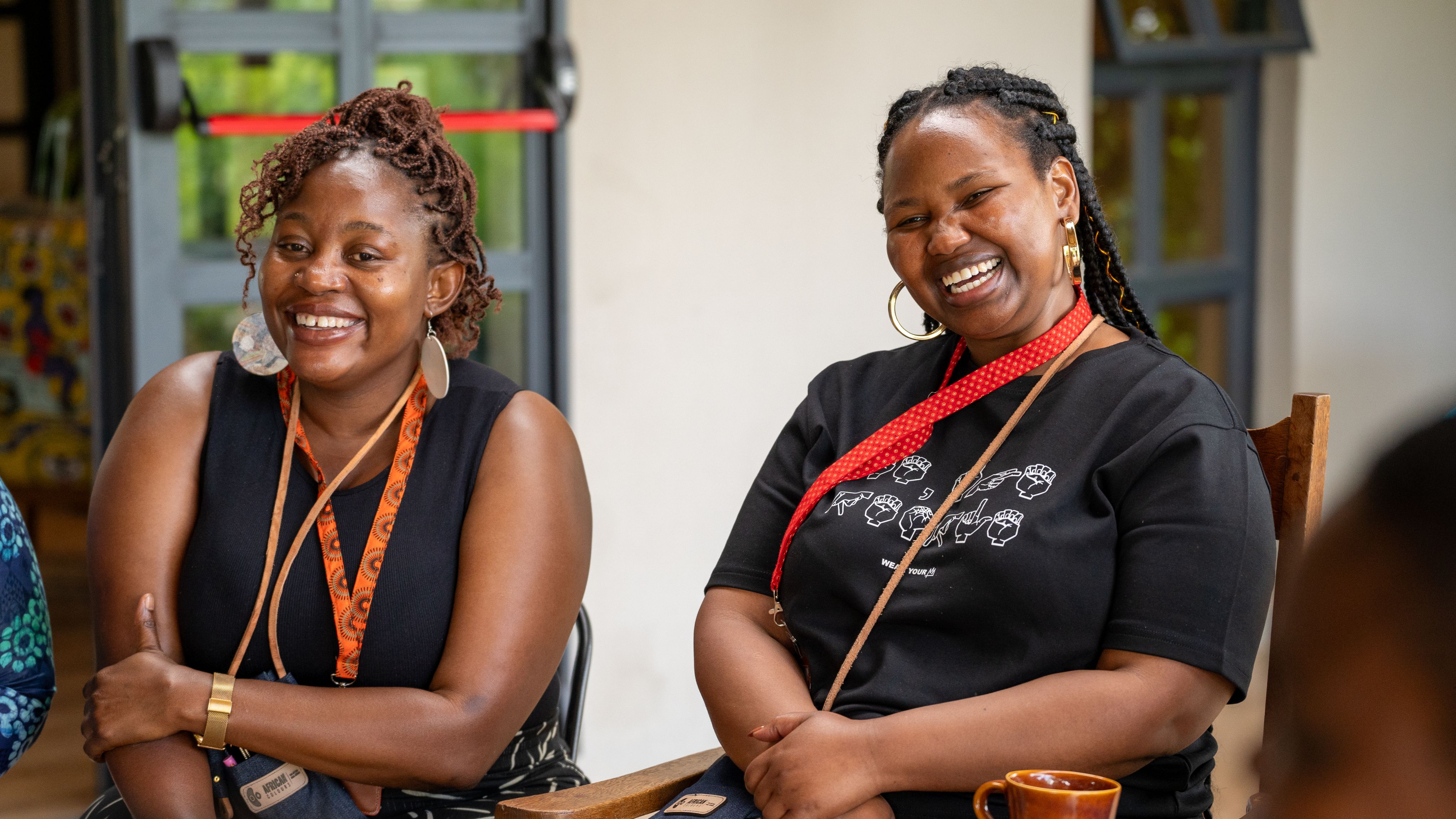
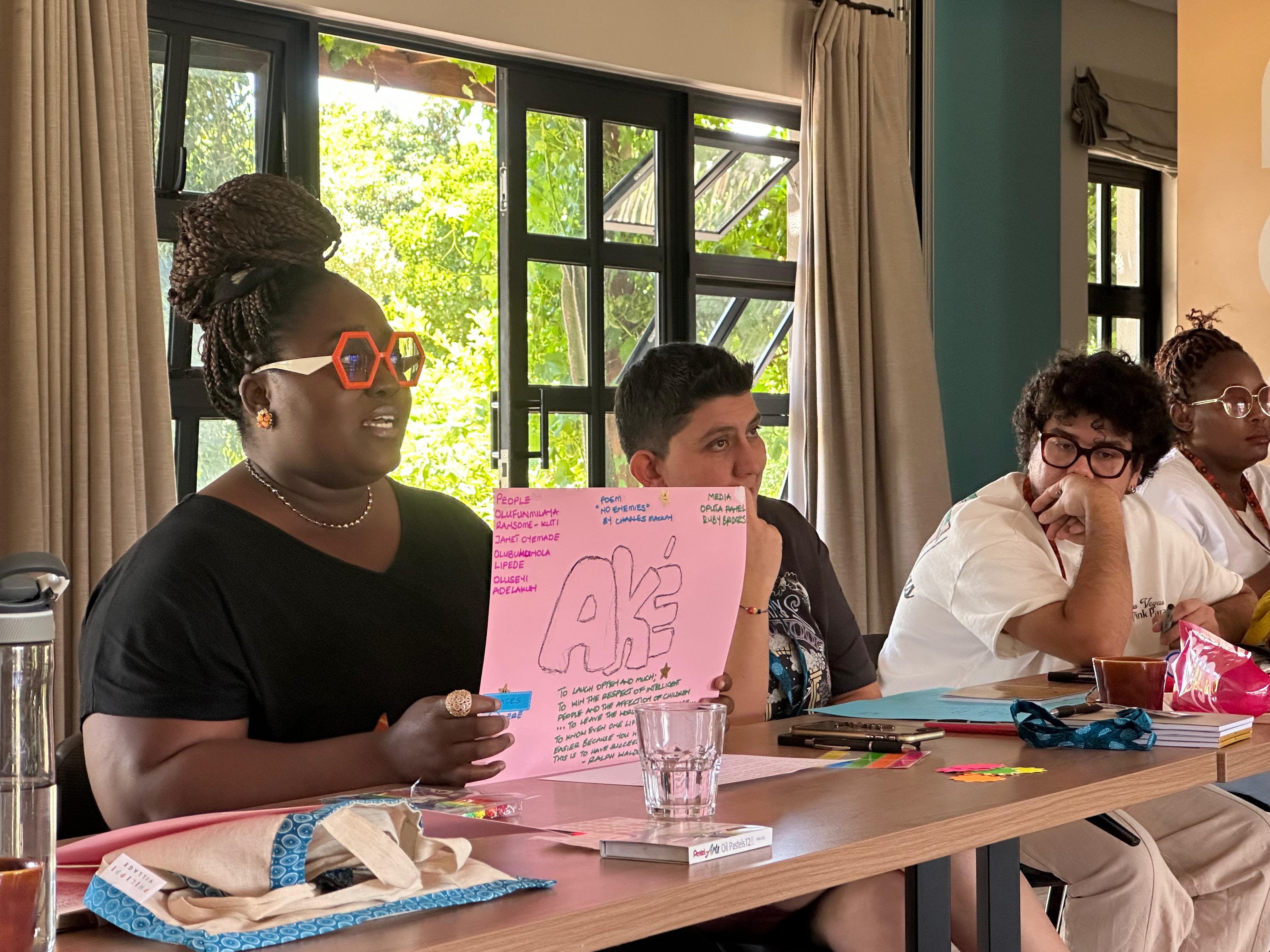
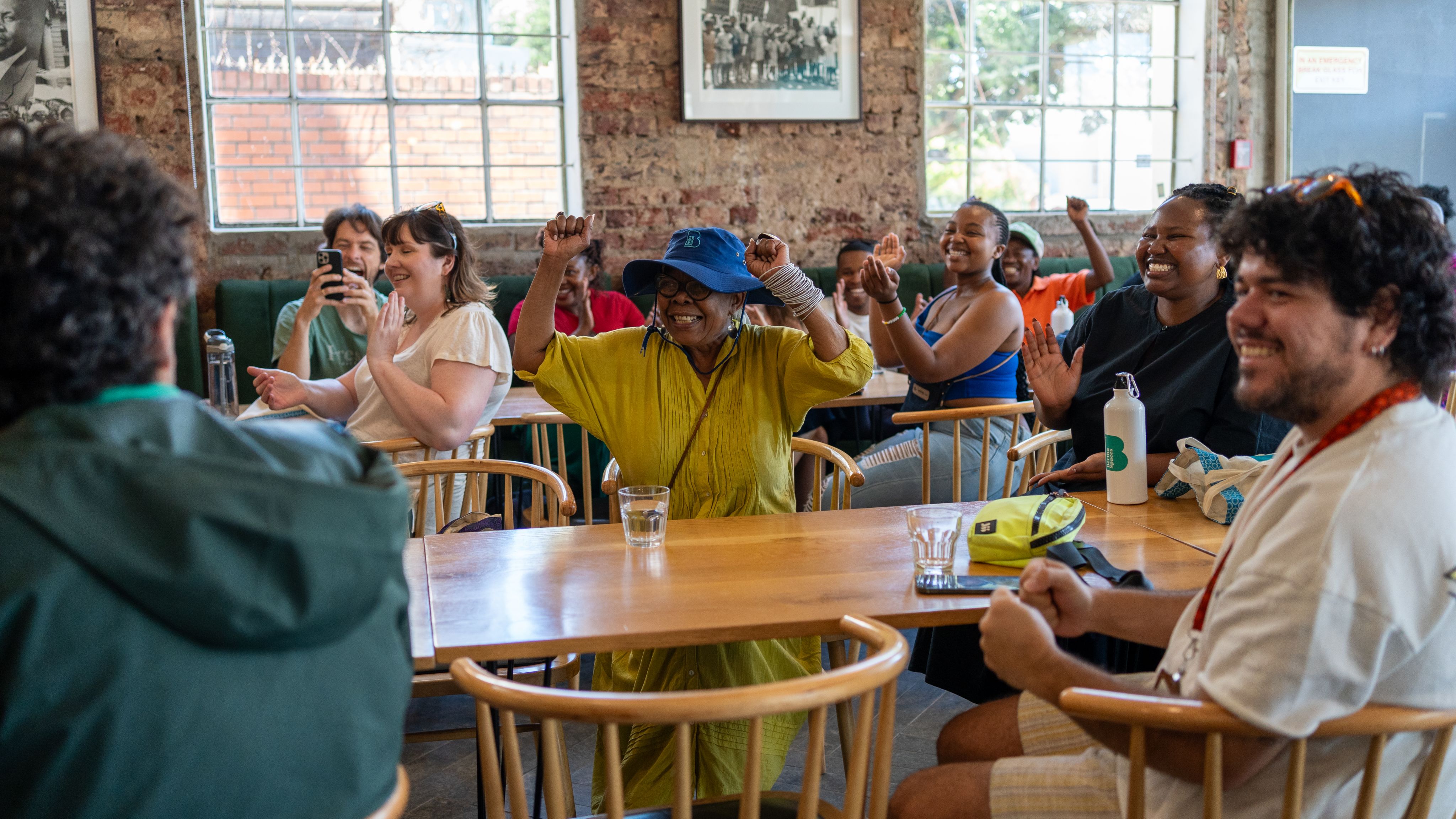
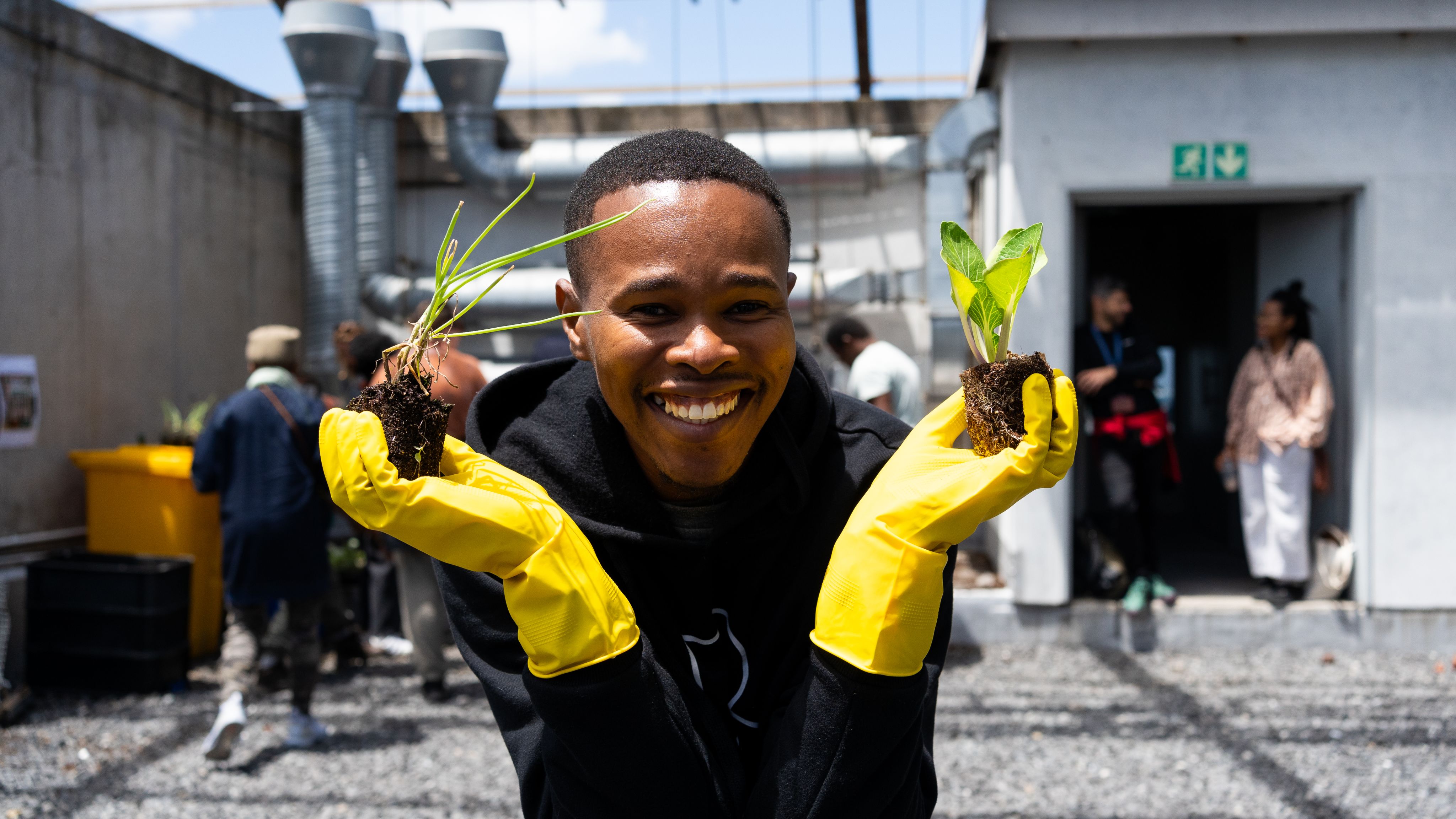
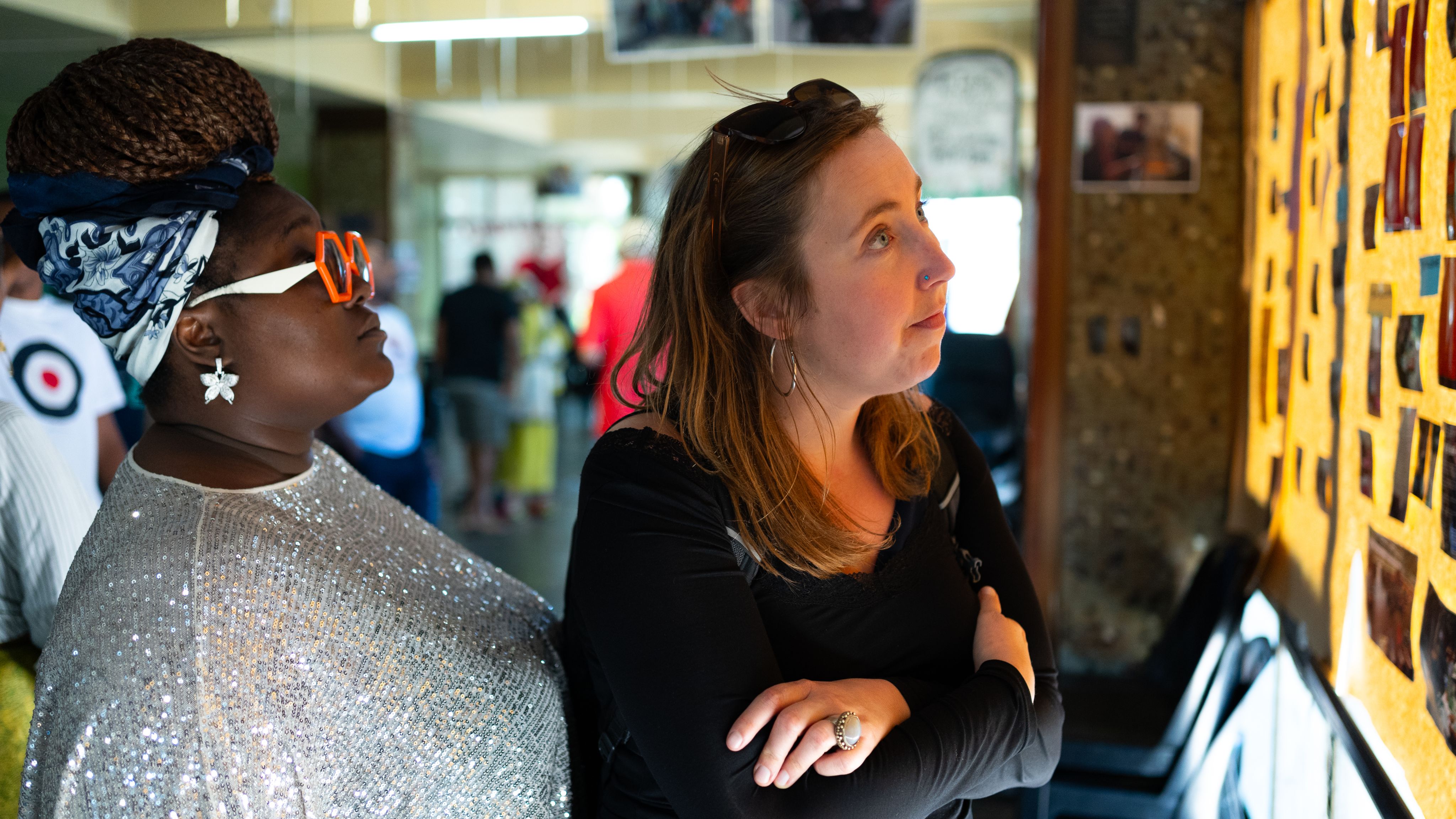
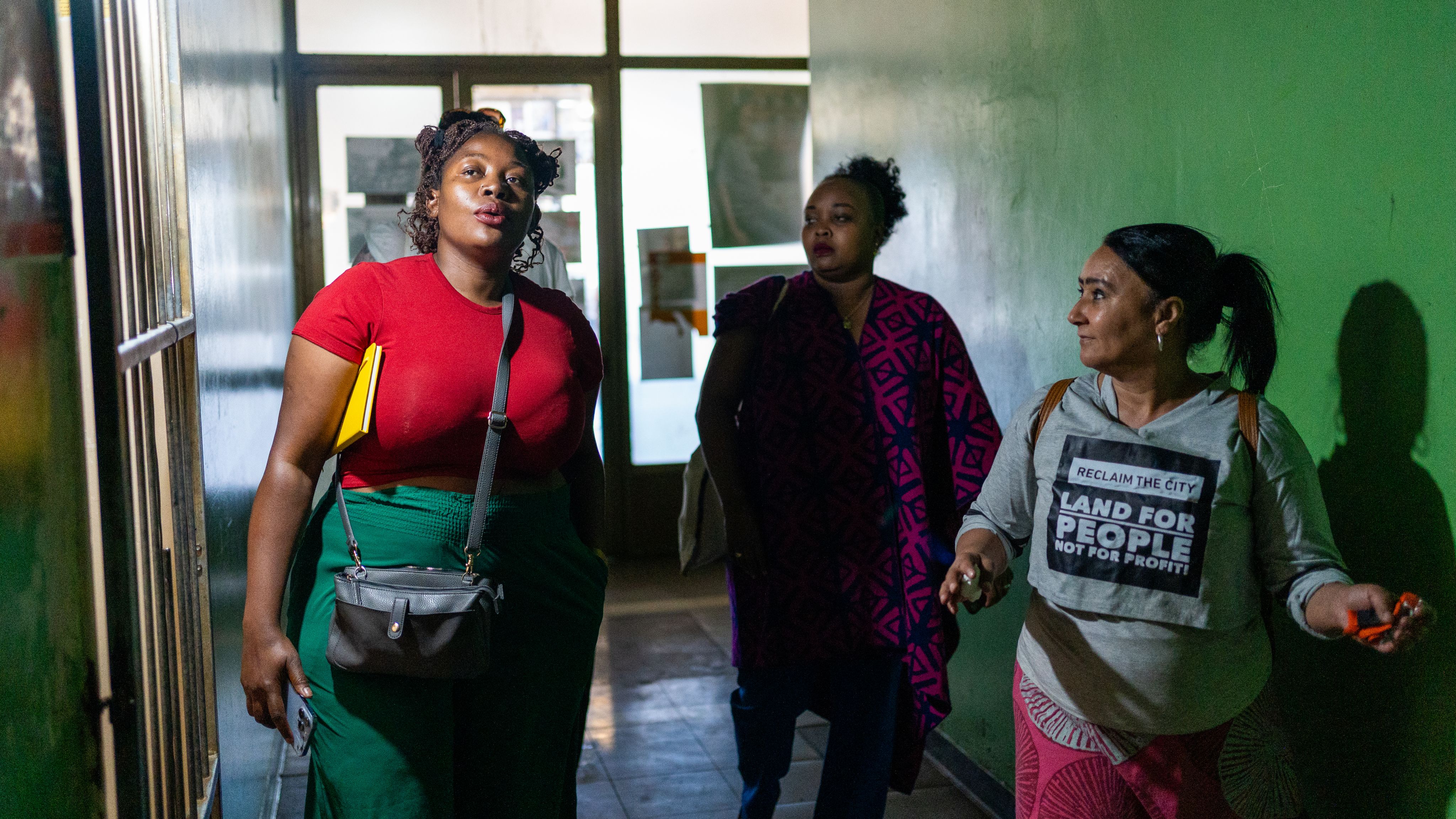
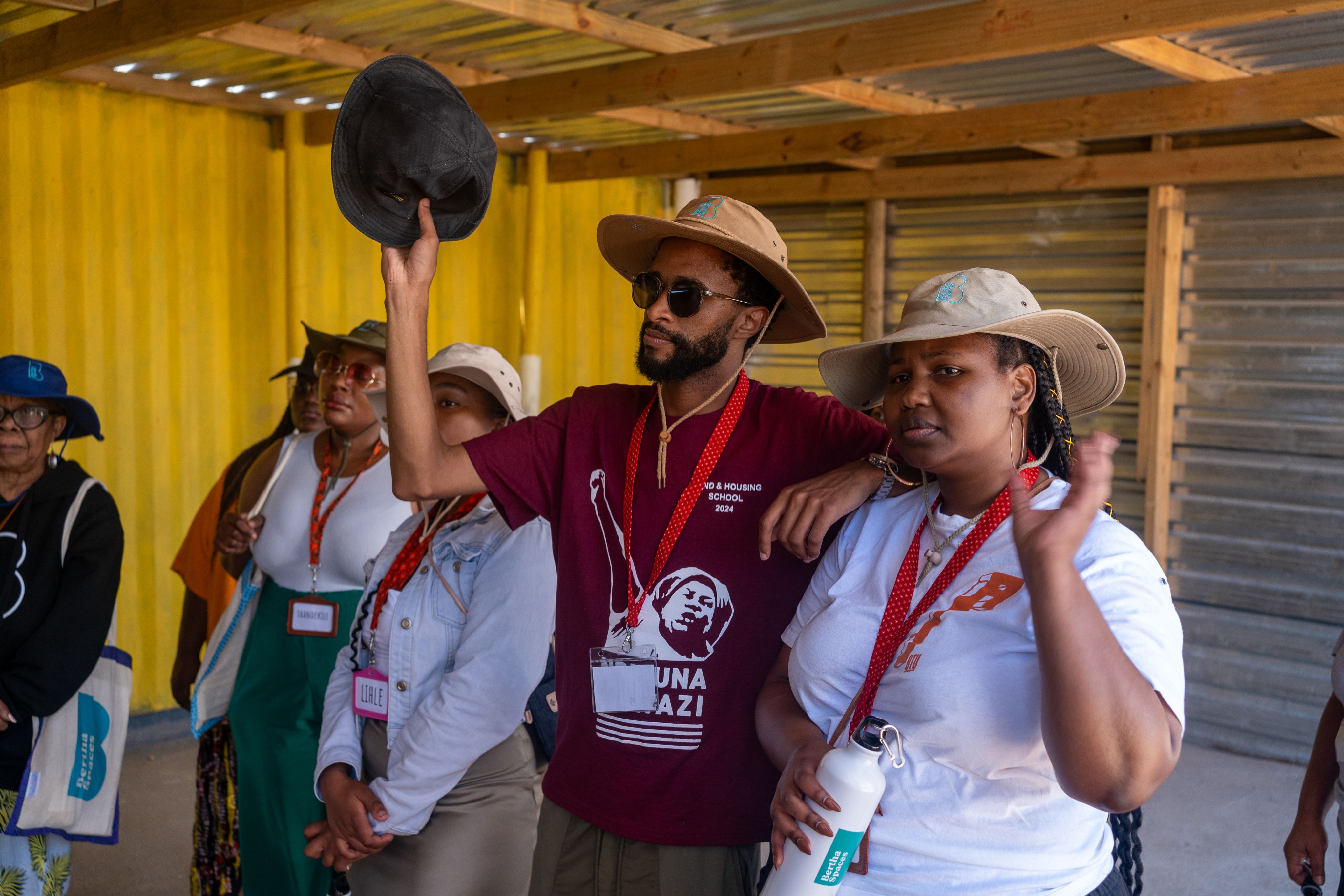
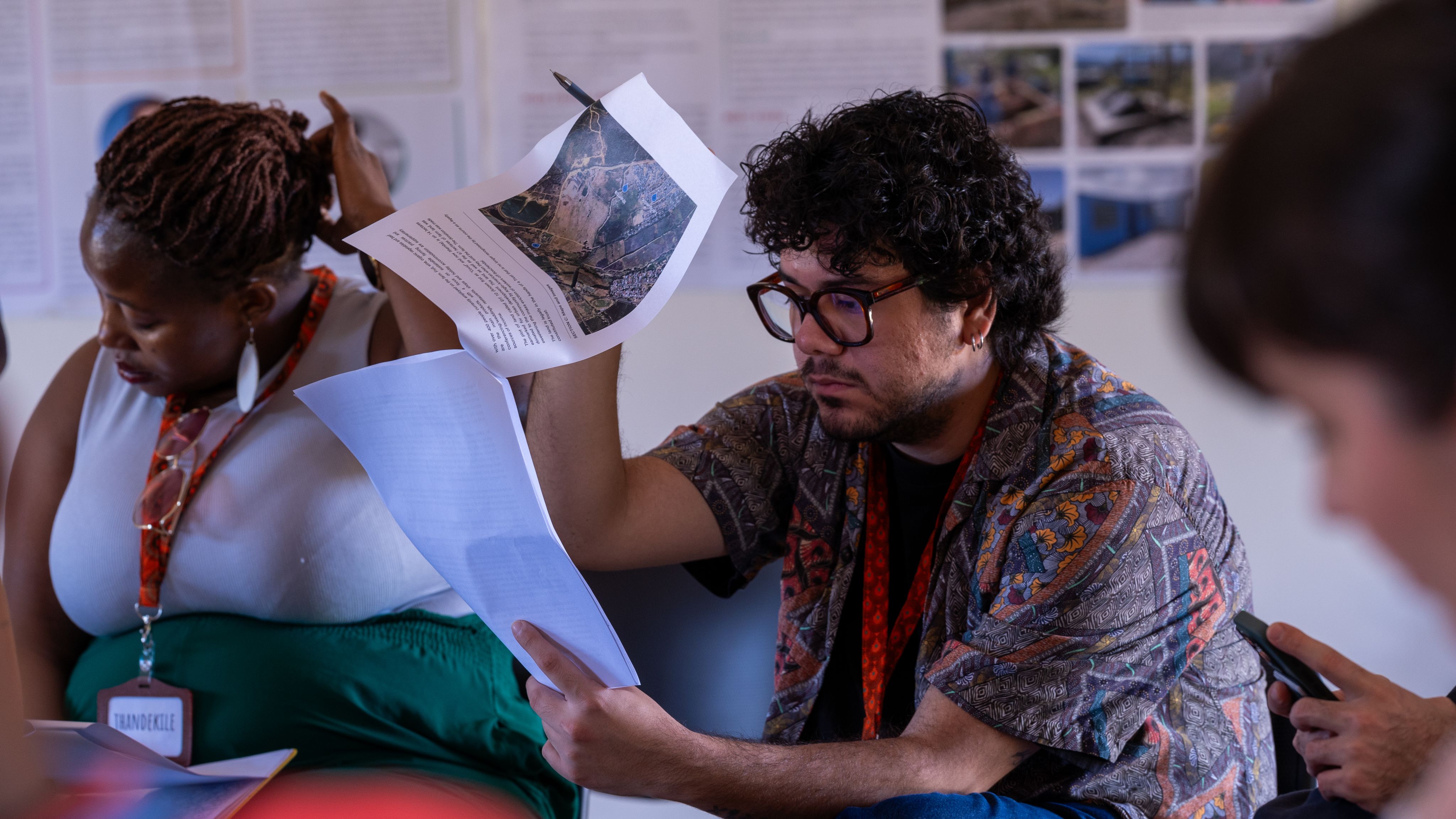
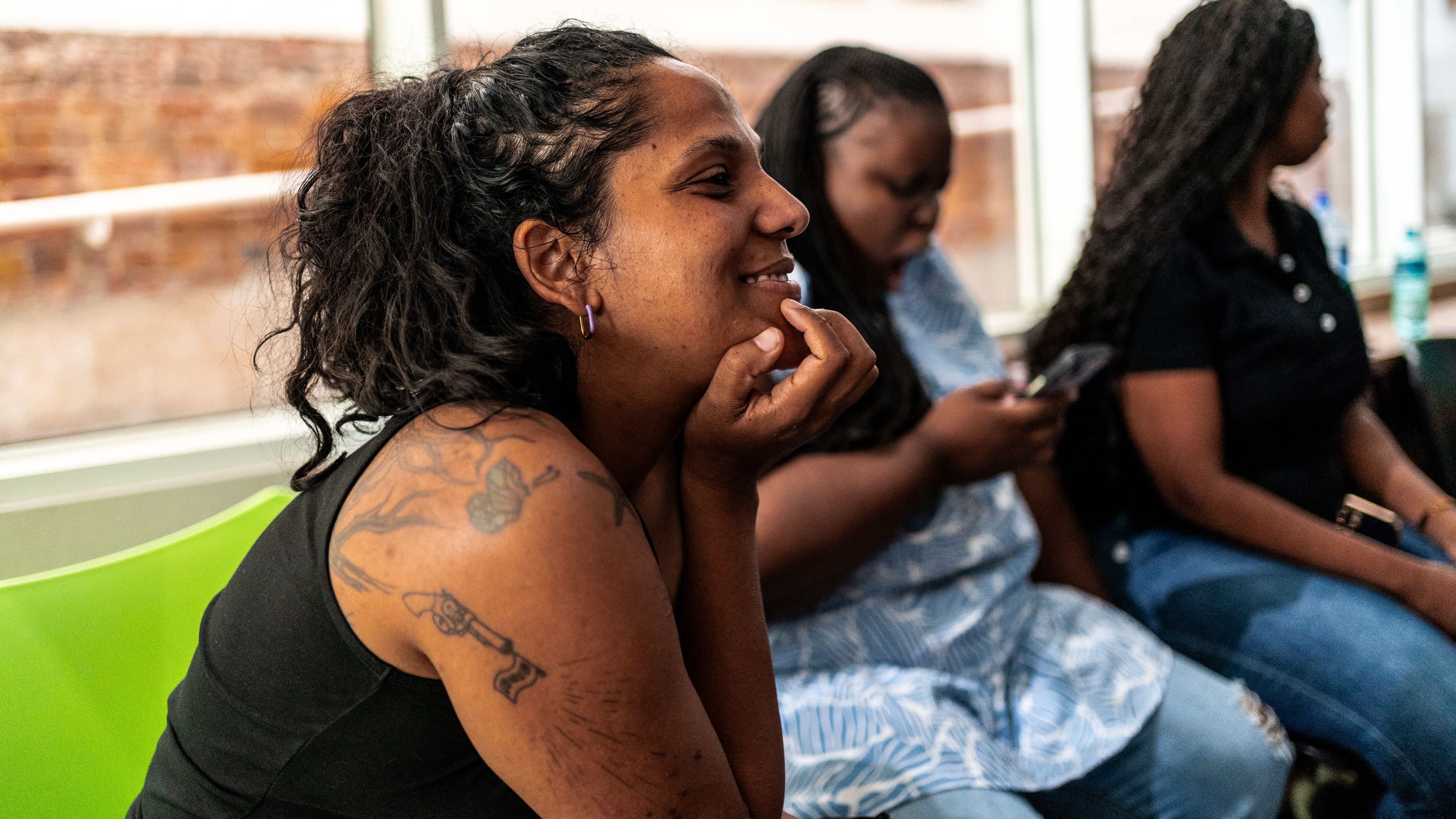
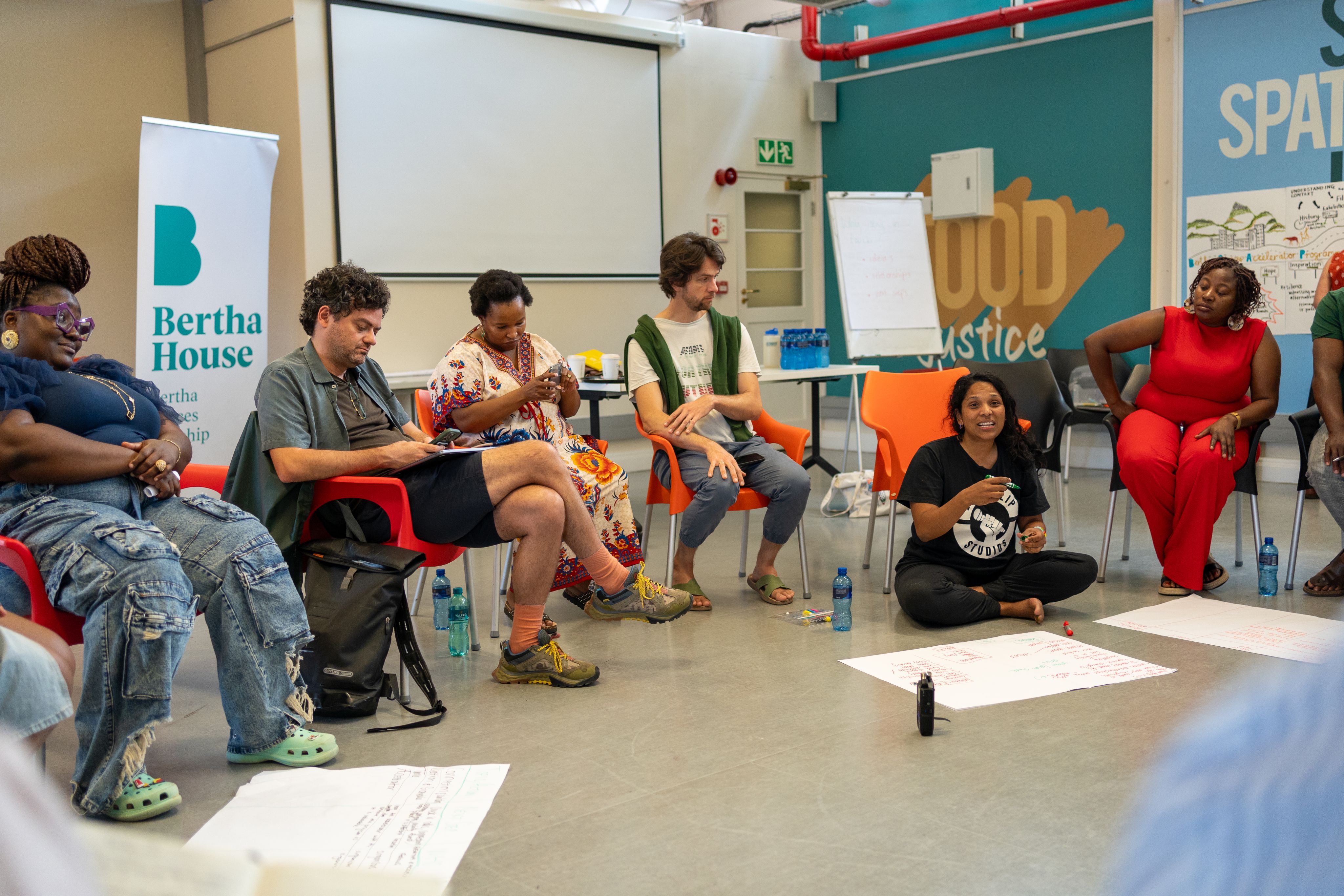
 Built with Shorthand
Built with Shorthand